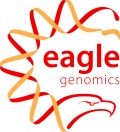| Please visit our ***NEW*** OBF/BOSC website: https://www.open-bio.org/ |
-
BOSC 2013
The 14th Annual Bioinformatics Open Source Conference (BOSC 2013) will take place July 19-20, 2013, in Berlin, Germany, right before ISMB/ECCB 2013.
Important Dates
|
Overview
The Bioinformatics Open Source Conference (BOSC) is a satellite of ISMB. It is sponsored by the Open Bioinformatics Foundation (O|B|F), a non-profit group dedicated to promoting the practice and philosophy of Open Source software development within the biological research community.
Open Source software has flourished in the bioinformatics community for well over a decade. When the first BOSC (Bioinformatics Open Source Conference) was held in 2000, there were already a number of popular open source bioinformatics packages, and the number and range of these projects has increased dramatically since then. BOSC covers the wide range of open source bioinformatics software packages that have been successfully developed and adopted by the community, and encompasses the growing movement of Open Science, with its focus on transparency, reproducibility, and data provenance. We welcome submissions relating to all aspects of open source bioinformatics software and open science, including new computational methods, reusable software components, visualization, interoperability, and other approaches that help to advance research in the biomolecular sciences. Two full days of talks, posters, panel discussions, and informal discussion groups will enable BOSC attendees to interact with other developers and share ideas and code, as well as learning about some of the latest developments in the field of open source bioinformatics.
Please spread the word about BOSC--all are welcome. On Twitter, follow @BOSC2013 and use hash tag #bosc2013.
Session Topics
- Cloud and Parallel Computing
- Genome-scale Data Management
- Software Interoperability
- Open Science and Reproducible Research
- Visualization
- Bioinformatics Open Source Project Updates
- Panel (TBD)
Keynote Speakers
Sean Eddy
Sean Eddy is a group leader at the Howard Hughes Medical Institute's Janelia Farm. He is interested in deciphering the evolutionary history of life by comparison of genomic DNA sequences. His expertise is in the development of computational algorithms and software tools for biological sequence analysis. He is the author of several computational tools for sequence analysis including the HMMER and Infernal software suites, as well as a coauthor of the Pfam database of protein domains. He serves as an advisor to several foundations and US science agencies, including the National Institutes of Health and the National Academy of Sciences, often on matters of large-scale computation and data analysis in biology.
Sean's talk is entitled Biological sequence analysis in the post-data era.
- Biological systems are almost unfathomably complex, yet their complexity is reproducibly specified by a small digital genome. We understand many basics of development and evolution but we lack a truly satisfying quantitative understanding of how biological complexity is specified and how it evolves. One important line of attack on the problem is to reconstruct the history of molecular evolution by comparative genome sequence analysis. Biological sequence comparison has a long intellectual history, but only recently, with the advent of inexpensive large scale DNA sequencing, have we gained comprehensive access to genome sequences from essentially all species. Though welcome, this influx of genome sequence data is exposing structural flaws in computational biology research tools. Because the research community values innovative science over infrastructure in any short-term decision, academic researchers have difficulty investing sufficient effort in robust software and datasets that may enable even more innovative science over the long term. Meanwhile, professional commercialization of the software and data infrastructure also continues to prove difficult, in part because open source code and data availability is a fundamental principle of scientific publication of reproducible, reusable results. I'll discuss what I see as some of the key tensions, challenges, and opportunities in these regard, in part in the context of our work at Janelia Farm on the HMMER and Infernal codebases, and our nascent work on the genomic specification of neural circuits in Drosophila.
Cameron Neylon
Cameron Neylon is Advocacy Director for the Public Library of Science, a research biophysicist and well known agitator for opening up the process of research. He speaks regularly on issues of Open Science including Open Access publication, Open Data, and Open Source as well as the wider technical and social issues of applying the opportunities the internet brings to the practice of science. He was named as a SPARC Innovator in July 2010 for work on the Panton Principles and is a recipient of the Blue Obelisk for contributions to open data. He writes regularly at his blog, Science in the Open.
Cameron will speak about Network ready research: The role of open source and open thinking.
Sponsors
We thank Eagle Genomics, Ltd. for sponsoring three Student Travel Awards at BOSC 2012. Each student winner will get free admission to BOSC.
BOSC Open Source License Requirement
The Open Bioinformatics Foundation, which sponsors BOSC, is dedicated to promoting the practice and philosophy of Open Source Software Development within the biological research community. For this reason, if a submitted talk proposal concerns a specific software system for use by the research community, then that software must be licensed with a recognized Open Source License, and be available for download, including source code, by a tar/zip file accessed through ftp/http or through a widely used version control system like cvs/subversion/git/bazaar/Mercurial.
See the following websites for further information:
BOSC Organizing Committee
Chair
- Nomi L. Harris (Lawrence Berkeley National Laboratory)
Members
- Jan Aerts (Katholieke Universiteit Leuven)
- Brad Chapman (Biopython developer; Harvard School of Public Health)
- Peter Cock (Biopython developer; James Hutton Institute)
- Christopher Fields (National Center for Supercomputing Applications)
- Jeremy Goecks (Emory University)
- Hans-Rudolf Hotz (Friedrich Miescher Institute for Biomedical Research)
- Hilmar Lapp (National Evolutionary Synthesis Center)
Ex Officio (Members of the O|B|F Board)
Previous BOSCs
- The first BOSC was held in 2000.
- BOSC 2012 took place in Long Beach, California, in July 2012.
- Information about the first 12 conferences
Contact Us
- Follow BOSC on Twitter: @BOSC2013, #bosc2013
- If you'd like to join the mailing list for BOSC-related announcements, including the call for abstracts and deadline reminders, please subscribe to the Bosc-announce list. This list has low traffic, and your address will be kept private.
- If you have questions about the conference, or would like to volunteer to help out, please contact the organizers at bosc@open-bio.org.



